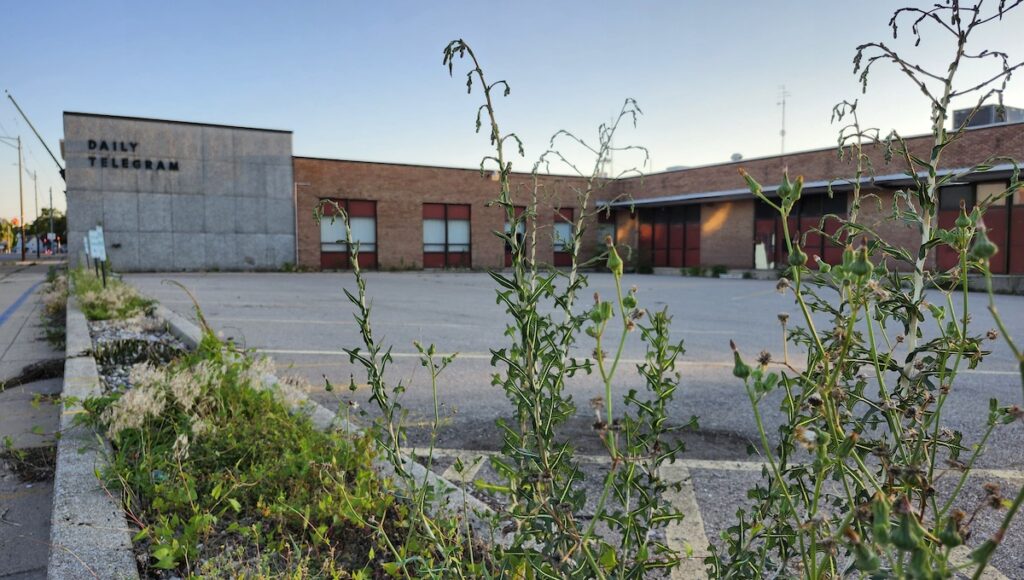
ADRIAN — After private efforts to rehabilitate downtown Adrian’s Winter Street riverfront area hit a number of stumbling blocks, the city has agreed to purchase the land in the hopes of getting things moving again.
The property is located along North Winter Street and includes the former offices of The Daily Telegram. Gannett, the Telegram’s parent company, sold its 133 N. Winter St. offices, along with the former Access Shoppers’ Guide building at 155 N. Winter St. and the former Adrian Eagles hall at 205 N. Winter St., in 2021.
City leaders say they believe the city will be in a better position than private investors to leverage grant funds to rehabilitate the land. The city hopes that the first of these will be a $500,000 Environmental Justice Impact Grant from the Michigan Department of Environment, Great Lakes and Energy.
The purchase of the property and the application for the Environmental Justice Impact Grant were both approved at the city commission’s July 1 meeting.
“We have unique characteristics in our community that give us an advantage” when applying for funding sources like the Environmental Justice Impact Grant, Jay Marks, the director of Adrian’s Downtown Development Authority, said at that meeting.
Marks said the grant program’s funding criteria are very favorable to Adrian, with only a few cities in the state likely to rank higher.
Although local governments are eligible to apply for the program, a private owner would not be, Marks added.
Marks said the grant should provide enough money to demolish all of the buildings on the property, or at least get close to it. The city also has money available from a legislative appropriation that was included in the state budget a few years ago to help with Winter Street redevelopment.
When Gannett put the property on the auction block in 2021, it was purchased by the Adrian Development Collaborative, a group headed by Mark Murray that was formed for the purpose of rehabilitating the riverfront area. The city agreed to purchase the land from the Adrian Development Collaborative for $500,000.
City administrator Greg Elliott said that figure was agreed upon because it’s roughly equivalent to what the investors paid for those three buildings and the land they sit on, plus an adjacent house, plus the survey and environmental work they put into the property.
Elliott said the hope is that once the buildings are demolished and the property cleaned up, a private developer can be enticed to building housing along the Winter Street side of the property, while the city would develop the riverfront as a public space.
“We’re the donut around the hole,” he said.
Once the purchase agreement is executed, it starts the clock on a 90-day due diligence period. If nothing the city finds during that period derails the agreement, the closing will happen after those 90 days.
The agreement did not come without criticism. Speaking during the public comment period of the July 1 meeting, Adrian resident Ken Tokarz characterized the purchase as a bailout for the investors and compared it to Lenawee County’s failed Project Phoenix, which aimed to turn the former Tecumseh Products factory into a sports complex.
City commissioner Bob Behnke disagreed with that assessment.
“There’s a vast difference between this property and the Phoenix Project property,” he said, adding that he believes the city is going into the Winter Street project with its eyes open.
Commissioner Gordon Gauss agreed.
“I think the majority of our citizens will appreciate the fact that they’re not going to have to look at the old Telegram building as it falls into decay,” he said.

